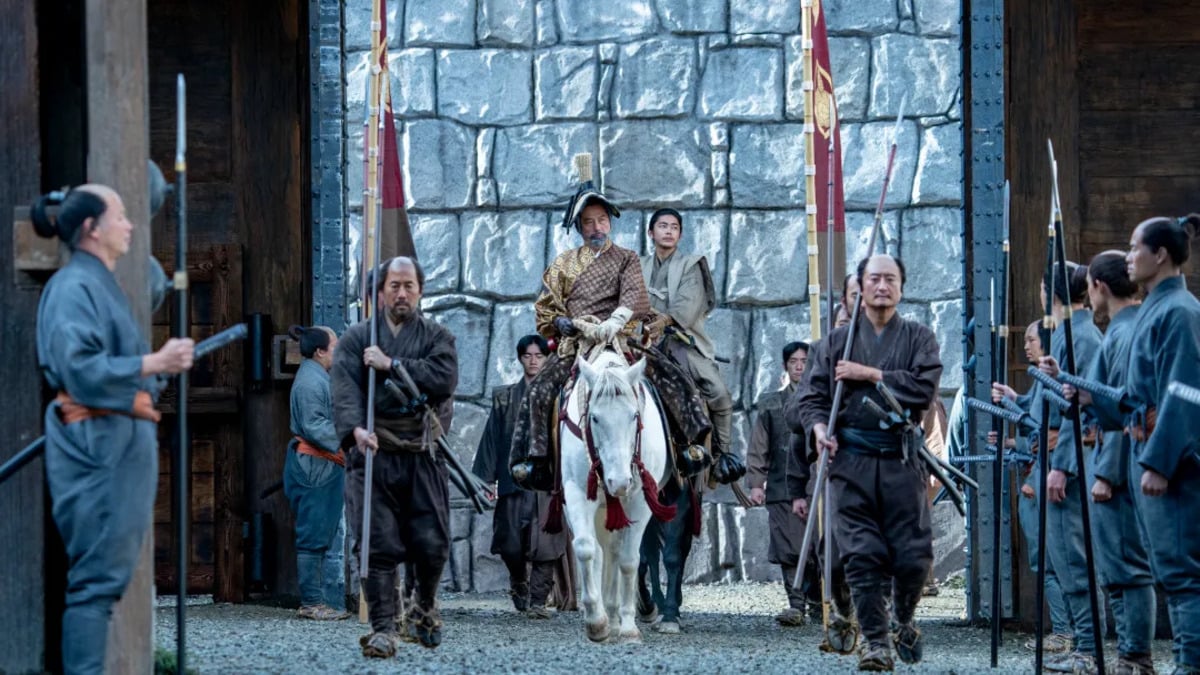2024 welcomed one of its splashiest new series in the form of FX/Hulu’s historical drama Shōgun, which debuted with a two-part premiere on Feb. 27. Opening to 100% on Rotten Tomatoes, the show seems destined to be a serious awards contender.
Based on James Clavell’s best-selling 1975 novel, Shōgun is set in the late 16th century and explores the collision between two ambitious men from different worlds and a mysterious female samurai. Namely, John Blackthorne (Cosmo Jarvis), an English sailor who ends up shipwrecked in Japan, Lord Toranaga (Hiroyuki Sanada), a shrewd and powerful daimyo, and Lady Mariko (Anna Sawai), a skilled woman with dishonorable family ties who must prove her value.
The second screen adaptation of the source material, following the 1980 miniseries of the same name, Shōgun is a visually stunning and expertly crafted depiction of feudal Japanese culture. However, as it is so rich with detail, it’s easy for those not familiar with the culture to lose track of the various designations and their meanings and significance. For instance, what exactly is a rōnin?
What is a rōnin in Shōgun?

In short, a rōnin is a masterless samurai. Literally translated it means “wave man,” but that more accurately translates to a “drifter” or a “wanderer.” Samurai were the military nobility of the feudal Japanese system and served the local lord or master — known as a daimyo — of the lands. They might become a rōnin if their master died somehow, perhaps killed in battle, or otherwise if they had renounced their lord or otherwise been expelled by him.
Either way, the proper path for the samurai was clear: he was supposed to kill himself. According to the samurai code bushido, a warrior should commit seppuku, ritual suicide, upon the death or loss of his master to preserve his honor. As both honor and finding a place in society was everything in Japanese culture during this period, any rōnin that avoided seppuku was viewed as the lowest of the low. The origins of the word “rōnin” itself reveal how poorly they were thought of: in earlier centuries, the term originally applied to slaves who had fled their master’s lands and had become little more than vagrants.
During the Sengoku period (1467-c.1600), rōnin may have got lucky and not remained that way for long as the constant civil wars ensured that daimyos always needed fresh warriors, so a samurai would often find himself snapped up by a new master. However, once the conflicts dried up thanks to Toyotomi Hideoyoshi unifying Japan, there was much less need for them. Due to being part of the samurai class, a rōnin was forbidden from finding a new trade or occupation, which left them doomed to not just a life of dishonor, but one of poverty and strife.
Due to their compelling tragic anti-hero flavor, rōnin have become a popular staple of TV and film depicting feudal Japan, appearing prominently in everything from Akira Kurosawa’s Seven Samurai to the Samurai Jack animated series. In modern Japanese society, the word rōnin is still in use, but it’s just taken on a very different, if related, meaning. Today, it’s often used to describe a high school grad who hasn’t found themselves a university or college yet. Thankfully, those students aren’t expected to commit seppuku.

